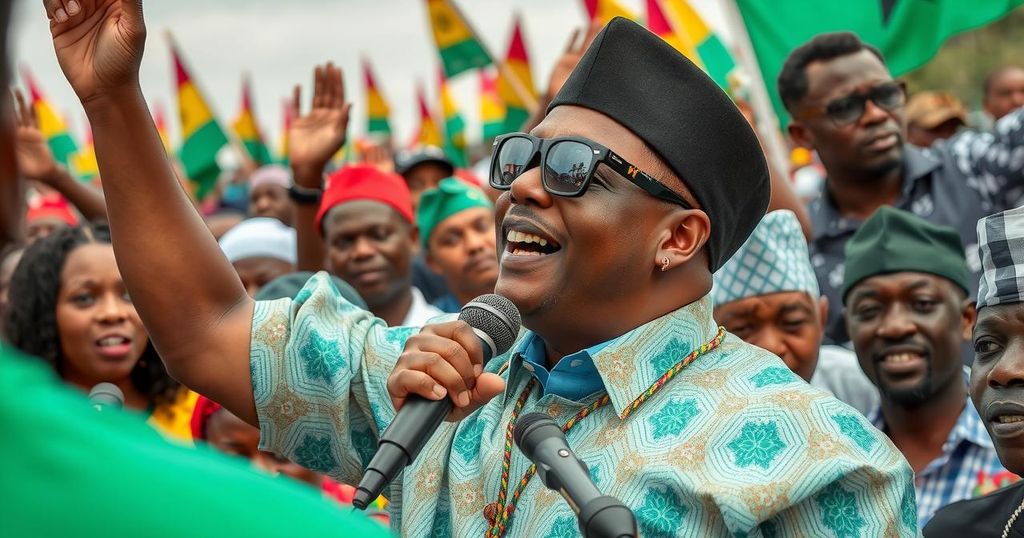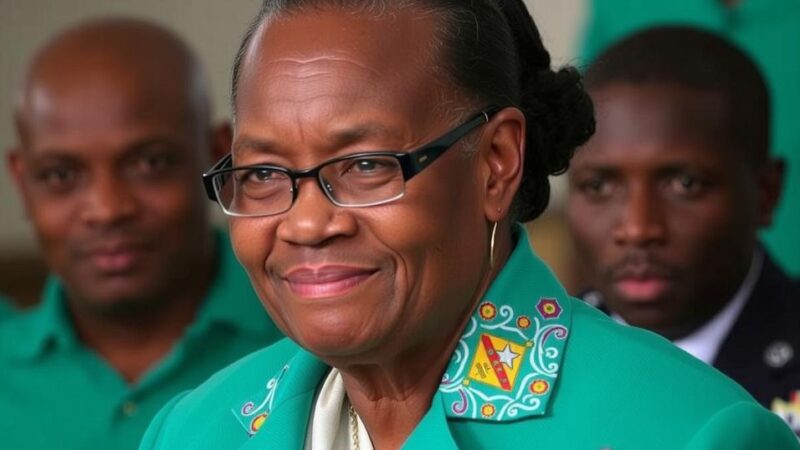Former president John Mahama has made a historic comeback in Ghana’s presidential election, winning after two previous attempts. His victory reflects public demand for economic reform amid grievances over national debt. Mahama, 66, plans to renegotiate the IMF deal and promises to create jobs, while also addressing corruption and maintaining a controversial position on LGBTQ rights.
Former president John Mahama has achieved a remarkable comeback in Ghana’s recent presidential election, marking a significant milestone in the nation’s political history. After previously unsuccessful attempts, Mahama triumphed this time by addressing the economic grievances of the electorate, thus reclaiming the presidency for the National Democratic Congress (NDC) party. This victory is particularly notable as Mahama is now the first leader in Ghana’s Fourth Republic to return to power after being ousted in an election.
In the election held on Saturday, Mahama faced off against Vice President Mahamudu Bawumia of the ruling New Patriotic Party (NPP), who acknowledged his defeat shortly thereafter. The elections revolved deeply around economic issues following Ghana’s debt default and the introduction of a $3 billion agreement with the International Monetary Fund (IMF). Mahama, 66, who served as president from 2012 to 2017, promises to rejuvenate Ghana’s economy, reform aspects of the IMF agreement, and implement a new economic model aimed at job creation, appealing notably to the youth.
As a political figure, Mahama has a rich background, being born into a privileged family in northern Ghana. His life experiences during a military coup in 1966 shaped his political views, which he later detailed in his memoirs. His prior experience includes serving as a member of parliament and leadership roles in regional organizations, positioning him as a seasoned leader. During his campaign, he advocated for combatting governmental corruption by proposing a dedicated office to oversee procurement processes exceeding $5 million.
Mahama has also expressed support for an anti-LGBTQ bill passed by Ghana’s parliament, despite the international backlash it has received. His campaign had positioned him as the candidate for change, and his spokesperson conveyed confidence in his potential to lead the nation more effectively than his predecessor. Nonetheless, Mahama’s previous administration contended with significant challenges, including an energy crisis that resulted in widespread power outages, undermining his reputation to some degree.
The election outcome showcases a pivotal shift in Ghanaian politics, with Mahama now poised to steer the country through its pressing challenges by leveraging his extensive experience and addressing the people’s demands from the upcoming administration.
The political landscape in Ghana has experienced various transitions since the return to multi-party democracy in 1992. This context is significant as it outlines the trajectory of leaders and electoral outcomes in the country. John Mahama’s previous tenure was met with economic difficulties and public discontent that fueled his electoral defeats in prior attempts. The resurgence of Mahama indicates a shift as he capitalizes on the dissatisfaction with current governance, primarily focusing on economic recovery and reforming international agreements as key to his campaign.
In summary, John Mahama’s election signifies a pivotal moment in Ghana’s political history, highlighting the electorate’s desire for change and economic recovery. His previous experience and promises to address pressing issues such as corruption and job creation resonated with voters, leading to his historic comeback. As he embarks on this new term, the success of his administration will largely depend on his ability to fulfill these pledges and restore public confidence after a challenging prior term.
Original Source: www.wfxg.com







